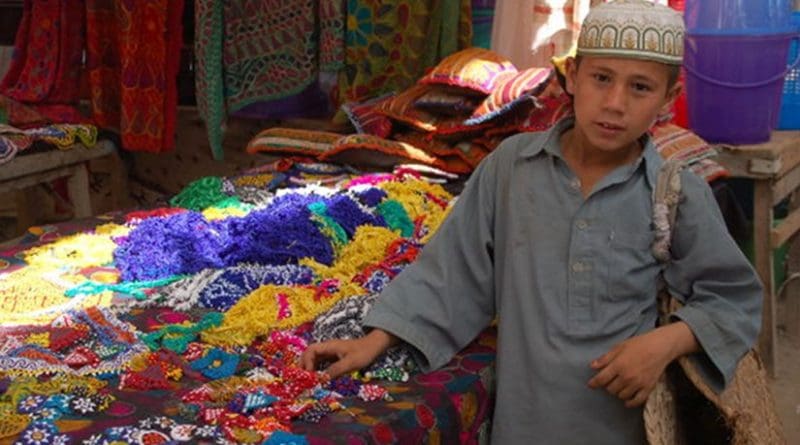Don’t Afghan Youth Deserve To Live In Peace? – OpEd
It was the period of 1990s; serious fighting was going on between the US & Arab states-backed Mujahideen and Dr. Mohammad Najibullah’s Soviet-backed regime in Kabul. It was an evening of usual curiosity, and I was only five years old at that time with little understanding of what was going on around me.
One evening, my father returned from the mosque and turned on his small and old radio to listen to the news. While listening along, I asked why war doesn’t end in our country. He didn’t say much but just smiled at me and tapped me on the back. My father used to listen to the news every day. As the security deteriorated, he decided that we should leave our homeland. We had to immigrate to Pakistan, leaving everything behind, from our house to our relatives and friends. We weren’t the only ones; millions of others had to make the same decision. We were constantly worried about our relatives who couldn’t leave the country during the civil war.
I continued to ask my father the same question, and he continued to smile, tapping me on the back. He thought I was too young to understand, or he didn’t want me to know about the horrible things that were happening in Afghanistan. He smiled to keep me motivated; he recounted, “the war in Afghanistan will end soon, and we will return to our homeland. God willing, you will have a bright future. You will live in a very peaceful environment. Once we return to our country, I will admit you in a school and you graduate and serve your country.“He further used to say that things would get back to normal after the withdrawal of Russians.
We used to live in a refugee camp in Peshawar. It wasn’t easy to live in a refugee camp, away from our relatives and friends. However, Peshawar still felt like home. Residents of Peshawar spoke the same language as us, and they weren’t very different from us. We used to get along with them pretty well. It felt like we had moved to a different province of Afghanistan. I made so many friends at the camp and outside the camp. Later in my life I found out that this part belongs to Afghanistan. It felt like part of my homeland because it is a part of my homeland. I often asked why I was called a refugee in this land of Afghans.
Time went by and my questions remained unanswered. The more I asked my father, the more he used to respond with less compelling answers. I spend most of my childhood in that refugee camp. I was enrolled in a school in the outskirts of an old building. We used to sit on a plastic carpet and the place had no roof to protect us from the cold or hot weather. I completed my elementary and middle school education but the fighting never stopped; rather, it worsened. It was during this time when the United States along with its allies bombarded Afghanistan in order to purge al-Qaida. The United States was on a mission to oust the Taliban regime, which harbored al-Qaida leadership after the very unfortunate incident of 9/11.
After a few years, I graduated from high school and then enrolled in a university. My father seemed a little hopeful. He used to tell me that one day it will be my generation who will play a vital role in stabilizing Afghanistan and making it once again a pearl of Asia as it used to be before 1979.
Today, tens of thousands of Afghan youth have higher education. Most of us completed our education outside our homeland because we had no other choice but to leave our country if we wanted to pursue our education. Luckily, I was able to do this because many families that I know couldn’t make this choice. While the superpowers used Afghanistan as a battleground to reach their goals, many ordinary Afghans like myself suffered. Many were never able to complete their education. My generation of people who stayed in Afghanistan probably doesn’t even know what peace means because they have never experienced it. In the war, many people were killed and wounded; some lost their loved ones; some became handicapped for the rest of their lives. The war affected almost everyone one way or another.
Millions of women became widows and millions sisters lost their brothers, who were mostly innocent. They had nothing to do with politics; they deserved to live peaceful lives with their families and loved ones. They deserved to live a dignified life just like other people live in peace in other parts of the world.
As far as I can remember our homeland has witnessed wars, destruction, killings and murders. My generation grew up during war. We couldn’t enjoy our childhood in our homeland the way our parents wanted us to enjoy. We had to endure hardship in refugee camps in Peshawar just to be able to live in peace. Would the next generation live in war as well? Don’t they deserve to live in peace?
When I have children, I hope to raise them in peace.

